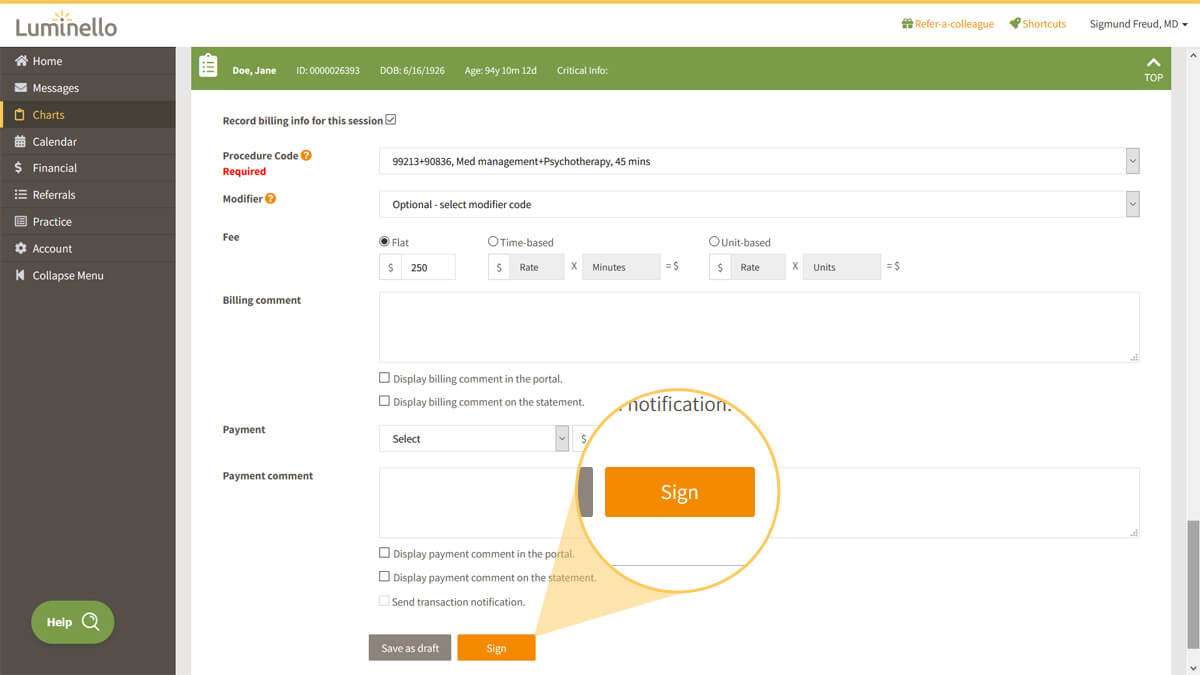Depression during pregnancy: You’re not alone
By Mayo Clinic Staff
If you’re pregnant, chances are you’ve heard about postpartum depression. But did you know that many women also experience depression during pregnancy?
Here’s what you need to know about pregnancy and depression.
How common is depression during pregnancy?
Pregnancy can be a time of joy — and stress. Research suggests that about 7% of pregnant women experience depression during pregnancy. Rates might be higher in low and middle income countries.
Depression, a mood disorder that causes a persistent feeling of sadness and loss of interest, is the most common mood disorder in the general population. The condition occurs twice as often in women as in men, and the initial onset of depression peaks during a woman’s reproductive years.
Why does depression during pregnancy often go unrecognized?
Some symptoms of depression, including changes in sleep, energy level, appetite and libido, are similar to symptoms of pregnancy. As a result, you or your health care provider might attribute these symptoms to your pregnancy, rather than depression.
Women might also be reluctant to talk to their health care providers about changes in moods during pregnancy, due to the stigma associated with depression. There’s also a tendency to focus more on women’s physical health during pregnancy, rather than mental health.
What are the risk factors for depression during pregnancy?
Some risk factors for depression during pregnancy include:
- Anxiety
- Life stress
- History of depression
- Poor social support
- Unintended pregnancy
- Intimate partner violence
What are the signs and symptoms of depression during pregnancy?
The signs and symptoms of depression during pregnancy are the same as those that occur with depression in the general population. However, additional clues that might indicate depression during pregnancy include:
- Excessive anxiety about your baby
- Low self-esteem, such as feelings of inadequacy about parenthood
- The inability to experience pleasure from activities usually found enjoyable
- Poor response to reassurance
- Poor adherence to prenatal care
- Smoking, drinking alcohol or using illicit drugs
- Poor weight gain due to a decreased or inadequate diet
- Thoughts of suicide
Some research suggests that depressive episodes occur more frequently during the first and third trimesters.
Why is treatment for depression during pregnancy important?
Related article
Antidepressants: Safe during pregnancy?
If you have untreated depression, you might not seek optimal prenatal care, eat the healthy foods your baby needs or have the energy to care for yourself. You are also at increased risk of postpartum depression and having difficulty bonding with your baby.
Depending on the severity of your depression, treatment options might include psychotherapy or antidepressants in addition to psychotherapy.
What are the recommendations for screening for depression during pregnancy?
The American College of Obstetricians and Gynecologists recommends that health care providers screen for depression and anxiety using a standardized tool at least once during pregnancy. During screening, your health care provider will likely ask questions from a standardized screening questionnaire, which consists of questions about mood and anxiety. Your answers are scored and your total score can be used to identify whether you have depression. Alternatively, your health care provider might ask you if, in the past month, you have been bothered by feeling down, depressed or hopeless or by having little interest in doing things.
There is limited evidence that screening to identify and treat depression during pregnancy improves outcomes. This might be due to variations in access to resources and appropriate treatment once depression has been diagnosed. However, screening for depression during pregnancy might provide some self-awareness of your risk of depression and anxiety.
If you think you might have depression during pregnancy, don’t wait for a screening. Talk to your health care provider about how you’re feeling and work with him or her to determine the next steps.
There is a problem with information submitted for this request. Review/update the information highlighted below and resubmit the form.
From Mayo Clinic to your inbox
Sign up for free, and stay up to date on research advancements, health tips and current health topics, like COVID-19, plus expertise on managing health.
ErrorEmail field is required
ErrorInclude a valid email address
To provide you with the most relevant and helpful information, and understand which information is beneficial, we may combine your email and website usage information with other information we have about you. If you are a Mayo Clinic patient, this could include protected health information. If we combine this information with your protected health information, we will treat all of that information as protected health information and will only use or disclose that information as set forth in our notice of privacy practices. You may opt-out of email communications at any time by clicking on the unsubscribe link in the e-mail.
Thank you for subscribing!
You’ll soon start receiving the latest Mayo Clinic health information you requested in your inbox.
Sorry something went wrong with your subscription
Please, try again in a couple of minutes
- American College of Obstetricians and Gynecologists Committee on Obstetric Practice. Committee Opinion No. 630: Screening for perinatal depression. Obstetrics & Gynecology. 2015;125:1268.
- O’Connor E, et al. Primary care screening for and treatment of depression in pregnant and postpartum women. Journal of the American Medical Association. 2016;315:388.
- Grigoriadias S. Mild to moderate antenatal unipolar depression: Treatment. https://www.uptodate.com/contents/search. Accessed Aug. 5, 2019.
- Grigoriadias S. Unipolar major depression during pregnancy: Epidemiology, clinical features, assessment, and diagnosis. https://www.uptodate.com/contents/search. Accessed Aug. 5, 2019.
- Biaggi A, et al. Identifying the women at risk of antenatal anxiety and depression: A systematic review. Journal of Affective Disorders. 2016;191:62.
See more In-depth
Oct. 26, 2021 — New evidence points to the importance of helping mothers with their mental health during pregnancy.
Researchers from the National Institutes of Health in Bethesda, MD, have found that feelings of stress or depression while pregnant are linked to changes in the placenta where the child is growing. The findings, published in Epigenomics, show these changes could alter gene activity.
Stress and depression are not uncommon among expectant women, with depression affecting an estimated 1 in 10 pregnancies, according to the American College of Obstetricians and Gynecologists.
And current evidence already suggests that depression during pregnancy can negatively affect a child later in life. For instance, one study found that depression during pregnancy was linked to behavioral and emotional disorders during childhood, and another found that it raised the risk of depression at age 18.
To investigate stress and depression during pregnancy, the NIH investigators evaluated 301 pregnant women from 12 clinics in the United States who had taken part in an earlier clinical study. The group was ethnically diverse, with 34% identifying as Hispanic, 26% as non-Hispanic white, 24% as non-Hispanic Black, and 17% as Asian or Pacific Islander.
What is depression?
Depression is a condition that affects your emotional state. It can cause you to have feelings of sadness and disconnection. A depressed mood is a normal reaction to loss, change, life’s struggles or self-esteem issues. However, depression can sometimes become intense, last for long periods of time and prevent you from leading a normal life.
It’s important to reach out to a healthcare provider if you’re experiencing depression. It can be treated, helping you feel better.
Is it common to get depressed during pregnancy?
Depression is almost as commonly seen in pregnant people as it is in non-pregnant people. This condition can happen at any time in your life, including during pregnancy.
What factors increase my risk of being depressed during pregnancy?
There are many different factors that can add to your risk of developing depression during your pregnancy. These risks can include:
- Having a history of depression or premenstrual dysphoric disorder (PMDD).
- Your age at time of your pregnancy — the younger you are, the higher the risk.
- Living alone.
- Having limited social support.
- Experiencing marital conflict.
- Feeling ambivalent about your pregnancy.
Does pregnancy cause depression?
Pregnancy can cause you to experience depression. Your body goes through a lot of change and the stresses of pregnancy can trigger depression in some people. Not everyone who becomes pregnant will also be depressed.
If you have experienced depression in the past, your symptoms could return or if you were living with depression before your pregnancy, it may get worse once you’re pregnant.
It’s important to talk to your healthcare provider about depression during pregnancy because it can extend after delivery. People who experience depression during pregnancy are at a higher risk of postpartum depression (depression after the baby is born).
What are some of the signs of depression during pregnancy?
During pregnancy, your body goes through many changes. You may experience a lot of different emotions throughout pregnancy — sometimes carrying you up the emotional roller coaster, and sometimes down. It’s okay to feel all of these different emotions. However, if you find you’re having any of the following symptoms during your pregnancy, it could be depression and you should reach out to your healthcare provider right away. Signs of depression during pregnancy can include:
- Having recurrent thoughts of death or suicide.
- Having a depressed mood for most of the day, nearly early day, for the last two weeks.
- Feeling guilty, hopeless or worthless.
- Having difficulty thinking, concentrating or making decisions.
- Losing interest or pleasure in most activities during the day, nearly every day, for the last two weeks.
If you have any of the above symptoms your provider may ask you the following questions:
- Over the past two weeks, have you felt down, depressed or hopeless?
- Over the past two weeks, have you felt little interest or pleasure in doing things?
If you answer yes to either of these questions, your healthcare provider will ask you more questions during a more in-depth depression screening test.
How does depression affect pregnancy?
Experiencing depression during pregnancy can impact a mother’s health in several ways. Depression during pregnancy can affect you by:
- Interfering with your ability to care for yourself. It’s important to take care of your own health during your pregnancy. Depression can cause you to push those personal needs aside. If you’re depressed during pregnancy, you might be less able to follow medical recommendations, as well as sleep and eat properly.
- Placing you at a higher risk of using harmful substances. These substances can include tobacco, alcohol and illegal drugs. Depression may cause you to turn to these substances, all of which can have a negative impact on your pregnancy.
- Interfering with your ability to bond with your growing baby. While the fetus is in your uterus, it can actually hear you talk and can sense emotion by the pitch, rhythm and stress in your voice. If you’re experiencing depression during your pregnancy, you might find it difficult to develop this bond with your baby. You might feel emotionally isolated.
What are my options if I’m depressed during pregnancy?
If you are experiencing depression during your pregnancy, there are steps you can take to help improve how you’re feeling. Preparing for a new baby is a lot of hard work, but remember that your health is important and needs to come first. There are a few things you can do to help with depression during pregnancy, including:
- Resisting the urge to get everything done. Cut down on your chores and do things that will help you relax. And remember, taking care of yourself is an essential part of taking care of the developing fetus.
- Talking about your concerns. Talk to your friends, your partner and your family. If you ask for support, you’ll find that you often get it.
If you are not finding relief from anxiety and depression by making these changes, seek your healthcare provider’s advice or a referral to a mental health professional.
Are antidepressant medications safe during pregnancy?
Growing evidence suggests that many of the currently available antidepressant medicines are relatively safe for treating depression during pregnancy, at least in terms of short-term effects on the fetus. Long-term effects have not been fully studied. You should discuss the possible risks and benefits with your doctor.




